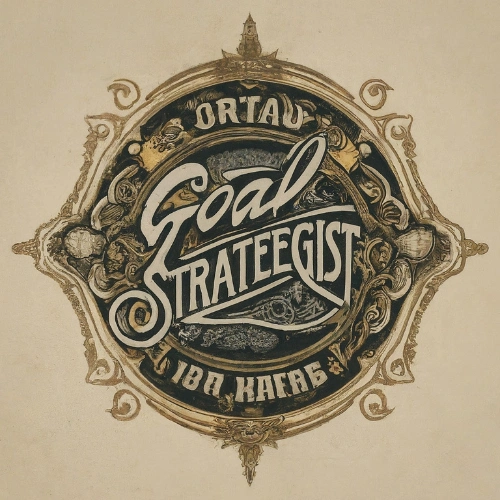Diving into the pages of history, you’ve likely heard of Adolf Hitler’s notorious manifesto, Mein Kampf. Penned during his imprisonment in the 1920s, this book offers a glimpse into the dark ideologies that shaped the 20th century. You’re about to uncover the core beliefs and ambitious goals Hitler laid out in this chilling work.
Mein Kampf is more than just a memoir; it’s a blueprint of Hitler’s vision for Germany, detailing his thoughts on race, politics, and the future. As you explore this narrative, you’ll see how Hitler’s personal grievances morphed into a national agenda with catastrophic consequences. Get ready to delve into the mind of one of history’s most infamous figures.
Background of “Mein Kampf”
Mein Kampf narrates Adolf Hitler’s ideological framework and his outlook toward Germany’s future. Penned during his time in Landsberg Prison following the failed Munich Putsch, the book spans two volumes, titled “A Reckoning” and “The National Socialist Movement.” Originally published in 1925 and 1926 respectively, these volumes were an attempt to present his struggle and outline his political ideology.
Despite its sprawling content, the book is organized around a set of core beliefs and ambitions. Central to Hitler’s worldview was the concept of Lebensraum, or living space. He envisioned the expansion of German territory, specifically in Eastern Europe, to secure the survival and growth of the German people. Moreover, race theory figures prominently throughout the narrative, with a pronounced emphasis on the superiority of the Aryan race and the denouncement of others, particularly Jews, as inferior.
In “Mein Kampf,” you’ll also encounter Hitler’s disdain for the Treaty of Versailles. He perceived it as a symbol of Germany’s humiliation and the cause of its economic hardships. His writings displayed his aspirations to defy the conditions of the treaty and restore Germany’s position as a dominant world power.
Hitler also refers to the importance of propaganda and maintaining a pure, unified Volksgemeinschaft or people’s community. The book advocates for a totalitarian state structured around a strong central leadership – ideas which later became the foundation for Nazi Germany’s governance.
Understanding this background helps to piece together the rise of National Socialism in Germany. Hitler’s blend of personal narrative with extremist ideology in “Mein Kampf” created a powerful rallying cry for those discontented with the status quo in post-World War I Germany. By exploring these underpinnings, you get a clearer picture of how Hitler’s convictions served as a catalyst for the nation’s descent into one of history’s darkest chapters.
Hitler’s Early Life and Ideological Development
Delving into Hitler’s past, it’s crucial to acknowledge how his early life experiences shaped the views professed in Mein Kampf. Born in Austria in 1889, Hitler’s upbringing was marked by a fraught relationship with his father and the early death of his mother. These family dynamics played a significant role in forming his personality and future perspectives.
Struggling in his early years to find a definitive career path, Hitler harbored artistic aspirations, which were dashed when he was rejected twice by the Academy of Fine Arts Vienna. During his time in Vienna, poverty and isolation contributed to the formulation of his ideologies. It’s here that he first encountered anti-Semitic sentiments and developed a pronounced interest in German nationalism.
World War I was a critical juncture; Hitler served with distinction and found a sense of belonging and purpose that had eluded him in his civilian life. The end of the war and the subsequent humiliation of Germany in the Treaty of Versailles ignited a burning resentment within him. He saw the treaty as a betrayal and a disservice to the nation, which echoed the sentiments of many Germans at the time.
Joining the German Workers’ Party, later known as the National Socialist German Workers’ Party (Nazi Party), Hitler began to refine his talent for oratory and persuasive speeches. Through his engagement with the party, his personal discontents became intertwined with larger political ambitions. He conceived a worldview that centered on Aryan supremacy and the need for expansive living space (Lebensraum) for the German people.
The ideological framework established in Mein Kampf wasn’t born in isolation but was rather a product of Hitler’s life experiences and the tumultuous political landscape of early 20th-century Europe. Asserting his beliefs through his narrative, Hitler sought to transform his individual ideology into a mass movement. Thus, understanding his early life is imperative to grasp the depths of the doctrines laid out in his manifesto, doctrines that would go on to shake the very foundations of Europe and the world.
Writing “Mein Kampf” in Prison
Adolf Hitler found himself incarcerated in Landsberg Prison after the failed Beer Hall Putsch in 1923. During this time, he devoted himself to painstakingly dictating and writing “Mein Kampf,” which translates to “My Struggle.” His imprisonment provided him a window of reflection and an opportunity to formalize his thoughts, which had been brewing for years.
As you delve deeper into the motivational forces behind Hitler’s writing, you’ll note that “Mein Kampf” was not just a political manifesto but also an autobiographical piece. Hitler used his time in prison to outline his ideology and future plans for Germany. Envisioning himself as Germany’s savior, he formulated a narrative that combined autobiographical elements with his extremist political ideology.
- Early chapters describe his childhood, his early years in Vienna, and his time serving in World War I.
- Later sections delve into his antisemitic views, racial theories, and aspirations for German expansion.
It’s essential to understand that Hitler’s writings in “Mein Kampf” were influenced heavily by his personal experiences and the political and social atmosphere of the time. He capitalized on the dissatisfaction and unrest amongst the populace in post-World War I Germany.
His musings while incarcerated featured a mix of self-aggrandizement and political blueprint, with notable points on:
- The Fuhrerprinzip, or ‘leadership principle,’ advocating for dictatorial power.
- His disdain for what he deemed “inferior races” and outlining plans for an Aryan-centric society.
- The need for Lebensraum, or ‘living space,’ justifying expansion into Eastern Europe.
Hitler’s propaganda during his incarceration laid the seeds for the policies he would implement once in power. And while “Mein Kampf” can be considered a window into Hitler’s mind, it also served as a warning that went largely unheeded until it was too late for the world to ignore the implications of his dangerous visions.
The Beliefs Expressed in “Mein Kampf”
In “Mein Kampf,” Adolf Hitler laid out a framework of beliefs and goals that promulgated his political ideology, which centered around:
- Racial purity and the supremacy of the “Aryan” race
- Anti-Semitism, revealing a deep-seated hatred towards Jews
- Anti-Marxism, opposing communist and socialist ideologies
- The importance of Lebensraum (living space) for the German people
- Construction of a centralized, totalitarian state under the Fuhrerprinzip or leader principle
Racial Ideology and Anti-Semitism: Hitler’s discourse in “Mein Kampf” is replete with references to the superiority of the Aryan race and the dangers of racial mixing. He argued that maintaining racial purity was key to the survival of the nation and the Aryan race’s supposed destiny to rule the world. Jews were constantly villainized as a threat to this racial purity and a scapegoat for Germany’s social and economic woes.
National Expansionism and Lebensraum: Hitler believed that for Germany to become a world power, it needed more territory. This expansionist ideal—Lebensraum—was predicated on acquiring land, particularly in Eastern Europe, to provide living space for the German people. He envisioned a brutal colonization policy that would displace the existing populations, making it clear that conquest and subjugation of other races were acceptable means to achieve German prosperity.
Centralization of Power: “Mein Kampf” articulates a clear rejection of democratic governance in favor of a totalitarian regime led by a single, powerful leader—the Fuhrer. This Fuhrerprinzip exalted the will of the dictator above all, denouncing the notion of checks and balances in governance. According to Hitler, this absolute authority was necessary to enforce the collective will of the people and ensure the success of the nation.
As you delve deeper into the pages of “Mein Kampf,” you’ll encounter a disturbing blueprint for a regime predicated upon hatred and tyranny. The manifesto goes beyond political views; it’s an alarming road map to a new order that became the foundation for Nazi policies and ultimately led to a devastating world war and the Holocaust. Understanding these elements of Hitler’s writing helps in comprehending the magnitude and impact of his plans for Germany and the world.
Hitler’s Goals for Germany in “Mein Kampf”
When delving into “Mein Kampf,” you’ll notice Hitler’s ambitious goals for Germany revolved around a grand vision of national revival. Central to this vision was the concept of Lebensraum, or living space. Hitler advocated for the expansion of German territories specifically to the east, arguing that the German people were entitled to acquire land from the Slavic countries, which he deemed inferior. The acquisition of this space was crucial for the growth of the Aryan population and to safeguard the future of the German race.
Another of Hitler’s goals outlined in the manifesto was the establishment of a centralized totalitarian state. The Fuhrerprinzip dictated a single leader with absolute power, rejecting democratic and parliamentary governance. This new state would be marked by its strong centralized authority, with Hitler at the apex, ensuring that the will of the leader could be implemented without opposition or delay.
Hitler also described a fierce restructuring of the German economy with an aim for self-sufficiency, known as Autarky. This self-sufficiency was meant to prepare Germany for long-term conflict and protect it from blockades and international pressure. The Third Reich, as Hitler envisioned it, would not be reliant on foreign nations for resources, which he believed would make it stronger and more secure.
Purification of the German race was another explicit goal. This entailed the exclusion, and ultimate extermination, of Jews and other groups Hitler deemed racially inferior from the German society. This genocidal aspect of Hitler’s ideology highlighted the extreme lengths to which he was prepared to go in order to achieve a homogenous racial state.
Hitler’s detailed plans for the revival of Germany as a world power presented in “Mein Kampf” drew upon a mixture of fanatical racism, populist nationalism, and aggressive foreign policy strategies. These goals were not mere rhetoric but would soon become the blueprint for one of the most devastating regimes in history. Your understanding of these objectives is essential to grasp the historical context and the ensuing global impact.
Conclusion
Grasping Hitler’s early influences and the chilling objectives he set forth in Mein Kampf is pivotal in your understanding of the harrowing trajectory of history. The ideologies and ambitions he so fervently described were not idle musings but a foreshadowing of the horrors that would unfold under his regime. You now have a clearer perspective of the seeds that sowed the destruction of countless lives and the reshaping of the world. It’s a stark reminder of the power of ideas and the importance of vigilance in the face of ideologies that threaten humanity’s core values.


Leave a Reply